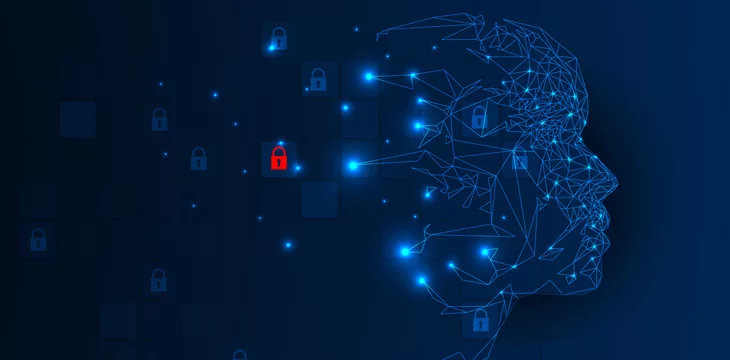|
Getting your Trinity Audio player ready...
|
The European Commission, part of the executive branch of the European Union, has been advised to prepare for the convergence of blockchain technology and artificial intelligence (AI), as stated in a report published on May 24.
Authored by the European Blockchain Observatory and Forum (EUBOF)—an initiative set up by the European Commission in 2017 to analyze and report on a wide range of blockchain themes—the report highlighted a number of upcoming trends in the blockchain space, as well as making related policy recommendations.
“These trends reflect the evolving nature of technology and its increasing integration into various sectors and reflect a dynamic and rapidly evolving landscape,” said the EUBOF.
The report’s principal insights related to the ongoing convergence between blockchain and AI, which it stated was “poised to shape the blockchain landscape.” It argued that the continued integration of these two technologies could enhance their capabilities, leading to “innovative applications and solutions.”
One key area of convergence was data security and privacy, where the report said that blockchain could provide a secure and transparent framework for AI data, ensuring data integrity and privacy. This would be particularly important in sectors such as healthcare and finance, where data security is paramount.
Another was decentralized AI, with EUBOF suggesting that AI models and data distributed across a blockchain network could potentially reduce the risk of data monopolies and promote collaborative AI development.
A third link between blockchain and AI involved the enhanced functionality of smart contracts “by enabling more complex and adaptive contract conditions.”
In terms of other upcoming and developing trends in blockchain, EUBOF highlighted the continued growth of decentralized finance (DeFi), increased interoperability of different blockchain networks, and a push for sustainability and energy efficiency in the space.
On top of identifying trends, the report made several policy recommendations for the European Commission to consider.
Specifically, promoting European actors and reinforcing EU engagement with multiple stakeholders; mapping key initiatives in Europe and beyond; monitoring developments, analyzing trends, and addressing emerging issues related to blockchain and AI; serving as a global knowledge hub on blockchain technology; and inspiring common actions based on specific use cases relevant to the EU.
The EUBOF rounded off its report by praising regulatory and legal strides already taken by the EU.
It singled out the bloc’s landmark Markets in Crypto Assets (MiCA) regulation, passed into law last April, as representing “a significant step toward legal clarity and operational safety in digital finance” while also praising the EU’s Digital Operational Resilience Act (DORA) for ensuring that the financial sector can effectively respond to ICT-related disruptions and threats.
“These legislative frameworks have not only enhanced the robustness of the financial and technological infrastructure but have also fostered an environment conducive to innovation and growth within the blockchain domain,” concluded the report.
In order for artificial intelligence (AI) to work right within the law and thrive in the face of growing challenges, it needs to integrate an enterprise blockchain system that ensures data input quality and ownership—allowing it to keep data safe while also guaranteeing the immutability of data. Check out CoinGeek’s coverage on this emerging tech to learn more why Enterprise blockchain will be the backbone of AI.
Watch: Blockchain, IPv6, AI & 5G will pave the way for the new Internet
Recommended for you
British lawmakers of the parliamentary national security committee have called for a temporary ban on political parties receiving donations in
Circle (NASDAQ: CRCL) soared in 2025 thanks to U.S. ‘regulatory clarity,’ but can this momentum survive a ban on crypto

 02-26-2026
02-26-2026 




